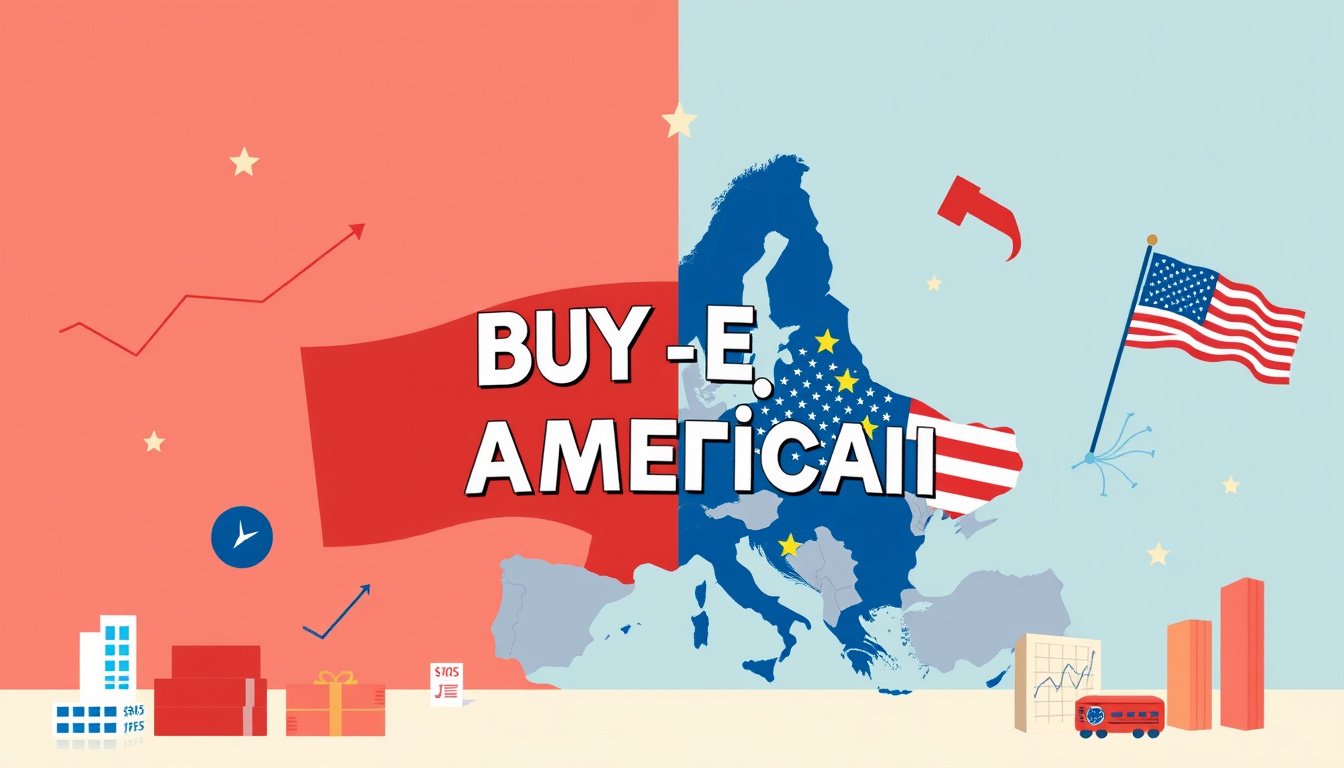In the wake of escalating trade tensions marked by President Trump’s imposition of tariffs, Europe is mounting a significant response against the United States’ aggressive "Buy American" campaign. A recent assessment by the European Central Bank (ECB) reveals a growing shift among European consumers, who are increasingly turning away from American products and services, signaling a notable backlash to the tariffs and trade policies originating from Washington.
Since April 2025, the Trump administration enacted a 10 percent tariff on a broad array of imports from its trading partners, with threats of reciprocal tariffs directed at the European Union. This move has triggered considerable unease among European consumers and businesses alike. Well-established American brands such as Tesla and McDonald’s, once popular across Europe, are now facing aversion rooted not just in higher prices caused by tariffs but in a political and cultural rejection of the perceived unilateral trade stance adopted by the U.S.
The ECB’s analysis highlights that even European households financially capable of absorbing higher costs are choosing to pivot away from American goods. This decision isn’t driven solely by price sensitivity but also by a growing sentiment of resistance against U.S. trade policies. Grassroots efforts have formed across various European countries, with organized boycotts targeting iconic American products—Heinz ketchup, for instance, has become one of the symbolic brands subjected to consumer pushback. Danish citizens, galvanized by President Trump’s controversial remarks about acquiring Greenland, mobilized no-buy campaigns on social media platforms, showcasing the broad cultural undercurrents amplifying economic tensions.
Iconic U.S. brands are feeling the heat. Harley-Davidson motorcycles, once emblematic of American cool in cities like Paris and Stockholm, face declining enthusiasm. Similarly, Levi’s jeans and Jack Daniel’s whiskey, staples in European fashion and nightlife, are caught in this complex web of trade retaliation and consumer sentiment.
The scenario presents a profound challenge for U.S. exporters who previously enjoyed robust demand in Europe. As the trade war intensifies, European consumers appear ready to redefine their purchasing priorities, with political considerations increasingly influencing shopping choices. This consumer stance could have long-term implications for transatlantic trade relations and the global supply chain.
Europe’s response underscores the intricate link between diplomacy, economics, and consumer behavior in today’s interconnected world. As both sides grapple with tariff negotiations and retaliatory measures, the marketplace becomes a battleground where cultural identity and political protest find expression through everyday buying decisions.
In sum, the "Buy American" push, intended to bolster U.S. industry, is facing significant headwinds abroad. Europe’s pushback serves as a potent reminder that trade policies, while crafted in government chambers, ultimately reverberate through the attitudes and wallets of consumers worldwide. Unless diplomatic solutions ease tensions, American brands may continue to experience a pent-up resistance across European markets – a trend that may very well redefine international trade dynamics in the years to come.










